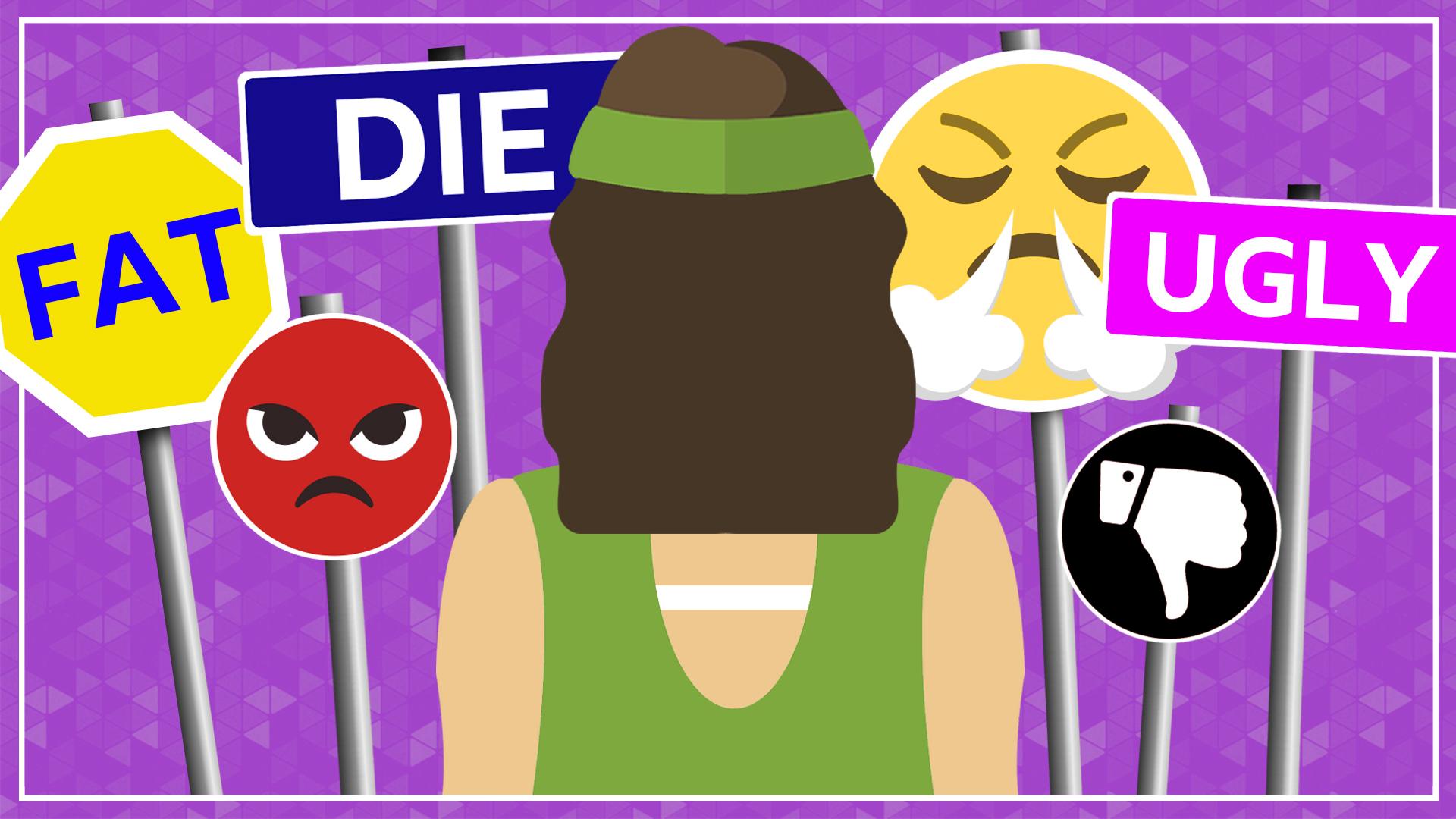Social media blackout: 'Deleting abuse is part of my morning routine'
- Published
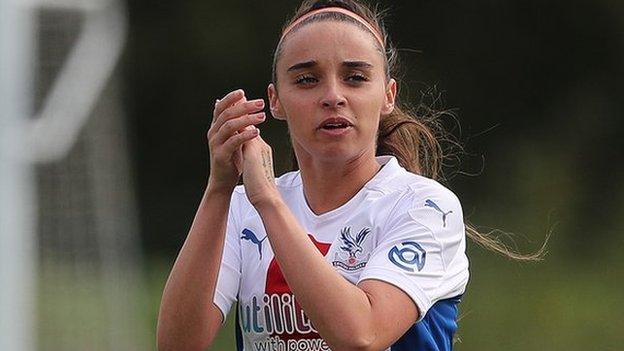
Leigh Nicol represented Scotland at every youth level
When footballer Leigh Nicol shuts down activity on her social media this weekend, she will be standing shoulder-to-shoulder with all the players who have experienced abuse and discrimination.
She will not post anything to her profile for four days but she will continue to log on to the delete explicit, hateful messages she receives.
It has become part of her morning routine - as normal as brushing her teeth.
This abuse is what football stars, clubs, numerous sporting bodies and athletes want to shine a light on as they go dark online from Friday afternoon.
The "show of solidarity against online abuse" will aim to encourage social media platforms to take a stronger stance against racist and sexist abuse.
It will start at 15:00 BST on Friday, and end at 23:59 BST on Monday.
Ahead of the blackout, Leigh shared a selection of disgusting and offensive messages to show what she puts up with day in, day out and why action has to be taken against it.
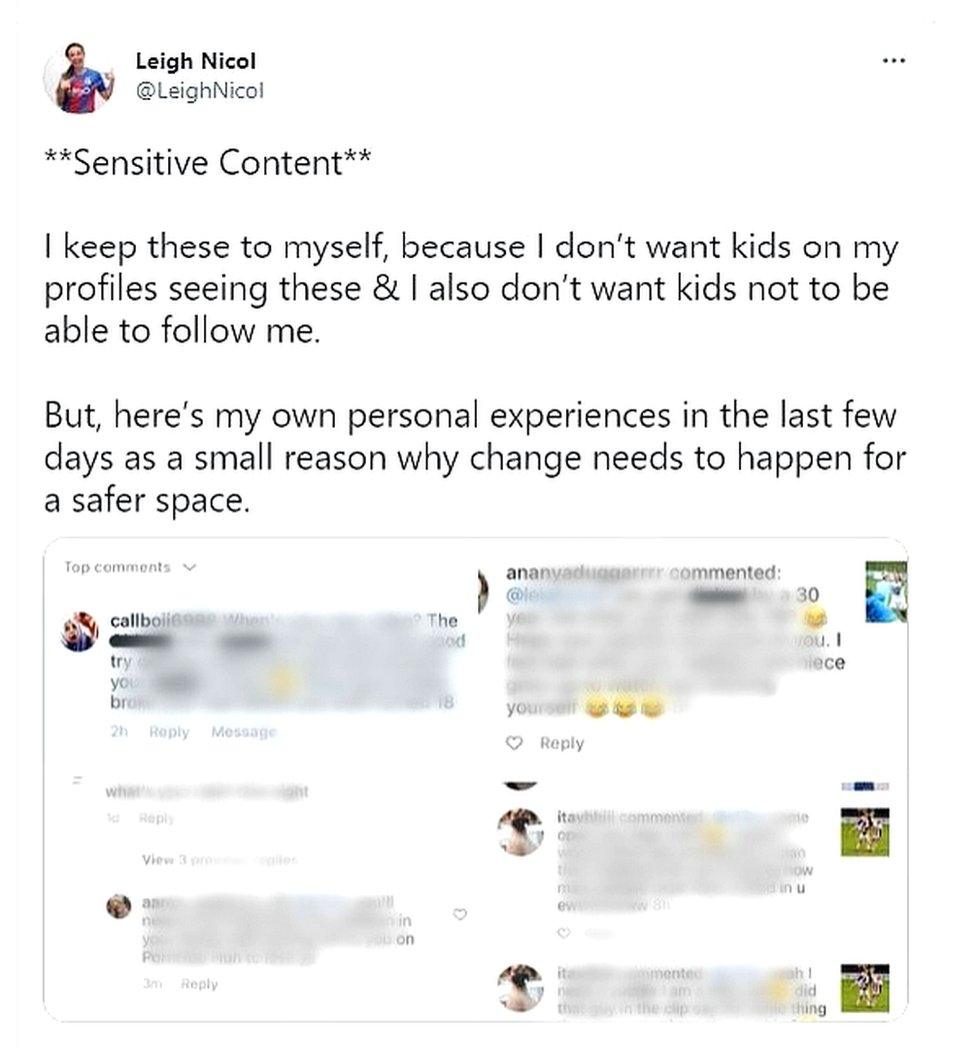
Leigh shared a selection of messages she received this week. We have chosen to blur the content here due to its offensive nature.
The 25-year-old from Lanarkshire was the victim of revenge porn and after her iCloud was hacked in 2019, and personal images were shared on adult websites.
The incident started a tsunami of trolling and constant online abuse which continues to this day.
"There was absolutely no way I could try to control it," she told BBC Radio's Good Morning Scotland programme.
"It was tough. I suffered panic attacks over what I was reading abut myself and I would struggle and wouldn't leave the house.
"I stepped away from the game for over 12 months just to get my mental health right and focus on myself. Part of that was just sheer embarrassment and not wanting to put myself back on the football pitch in case of any comments."
But after therapy and support from her employers, she gained the strength to return and try to live "a normal life". But it is something she has to keep on top of every day.
'Immune to it'
"The way I control it from the outside world is I just keep deleting it and I monitor it closely every single day so I know the first thing I do in the morning is wake up and have a look at the comments so I can keep it clean for my family and youngsters who are on my profile."
She added: "Over time I have become immune to it and think of it like reading the paper and think about it as being about someone else.
"I have grown a really high tolerance from it now. It's the past and all we can focus on trying to make a positive change for future generations coming through."

Leigh Nicol says she has developed a "high tolerance" to abusive posts
Leigh now uses her platform to speak to school pupils about social media and its pitfalls and how to be patient, kind and safe online.
She works with media law company B5 Consultancy to educate, support and protect clubs and players from under nines to first team international footballers.
Starting with English Premiership clubs, the boycott has grown to include football entities in all four nations, and organisations in rugby union, rugby league, cricket, F1, gymnastics and numerous other sports.
It is a response to a recent escalation in abuse against athletes.
A BBC Sport survey in August of elite British sportswomen found that one third of participants had suffered abuse on social media.
'Individuals should be traceable'
And the UK government has previously threatened social media companies with "large fines", which could amount to "billions of pounds" if they fail to tackle abuse on their platforms.
But Leigh believes effective measures could be simple.
She said: "They need to implement some kind of ID before you sign up to these websites. We've seen it used on dating apps so it is possible. It has got to be a birth certificate, a passport or driving licence or national insurance number. Individuals have to be traceable."
And she had a message for anyone who has, or has considered, dishing out online abuse.
"The people you are doing it to is someone's daughter, son, sister, mum or dad. They will have someone in their life that means a lot to them, so think of them when you do it. We are all human beings. We are not robots - we have emotions and the comments do get to us.
"We don't tolerate this in streets or in workplaces or in schools and I don't see why it should be allowed online. Enough is enough."


Related topics
- Attribution
- Published3 February 2021
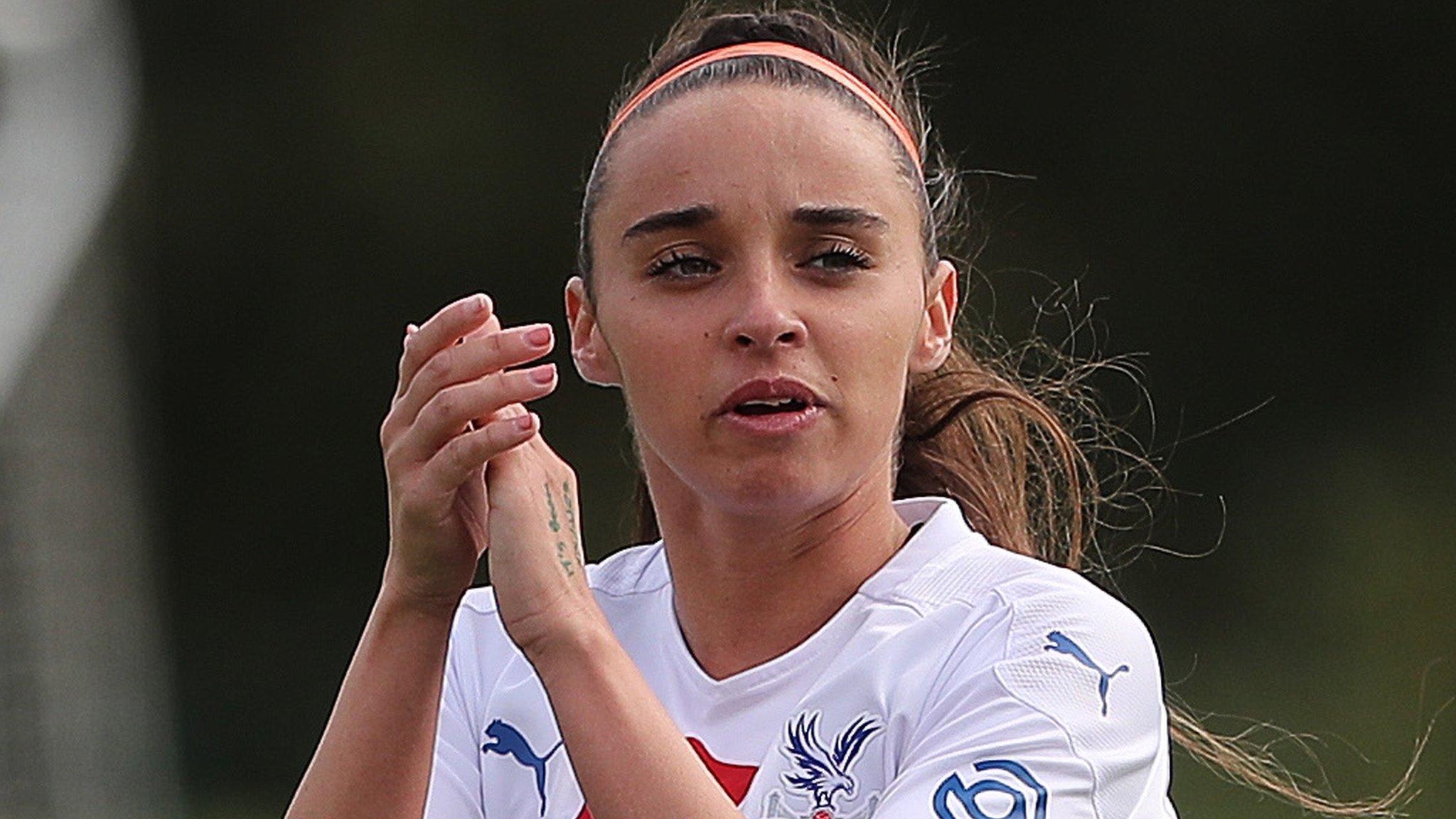
- Attribution
- Published29 April 2021
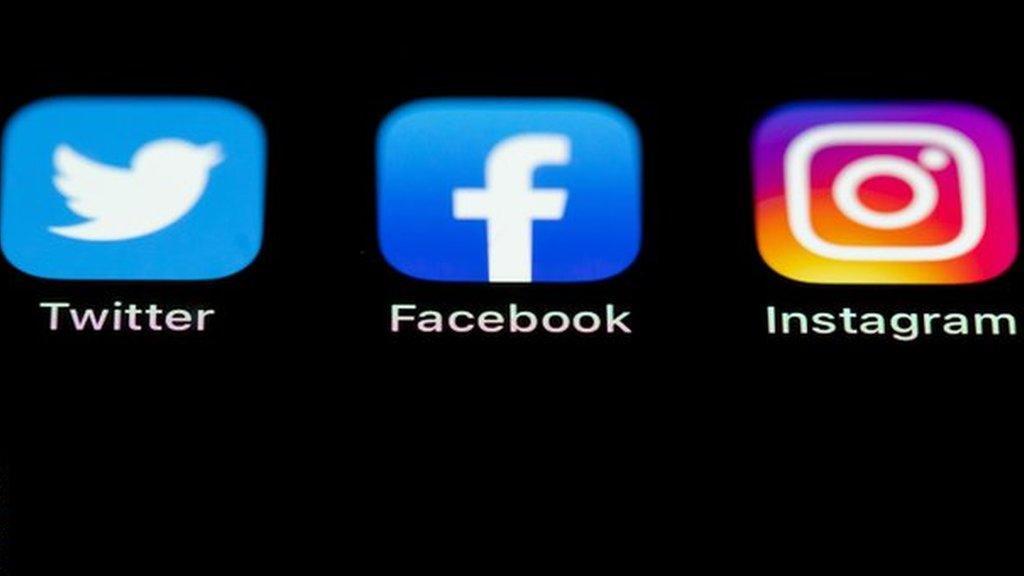
- Attribution
- Published10 August 2020
